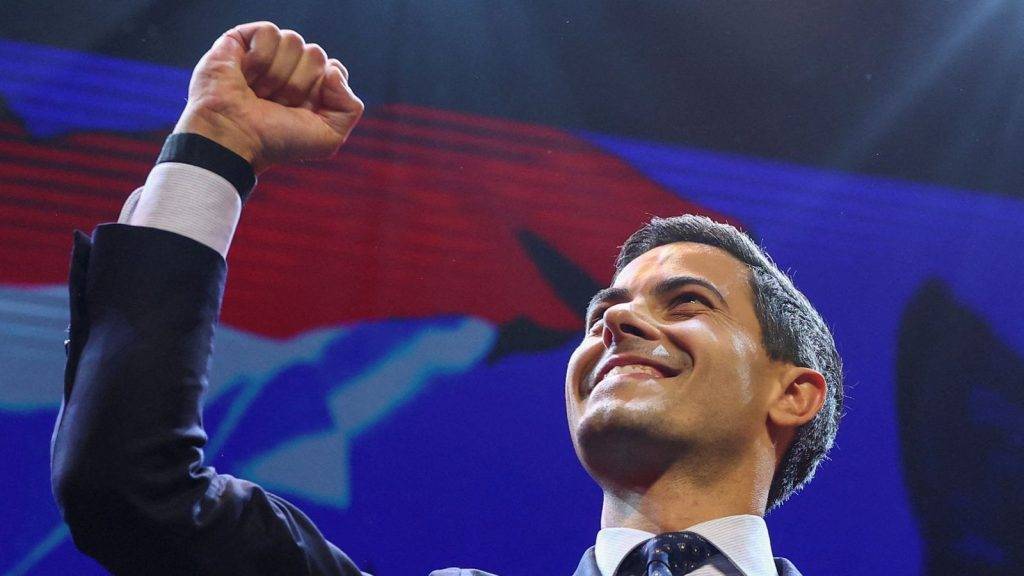TL;DR
- Rob Jetten, at 28, is poised to become the Netherlands’ youngest ever prime minister, leading the centrist D66 party to a projected victory over Geert Wilders’ Freedom Party.
- The election results follow Wilders’ decision to dissolve the government, necessitating a coalition for Jetten, who requires 76 seats for a majority in the 150-seat parliament.
- Jetten campaigned on promises to address housing, education, and immigration, claiming a significant win against populist and far-right movements in Europe.
Netherlands election: Geert Wilders’ far-right party suffers blow as centrists lead in exit poll
The Netherlands is set to elect its youngest ever prime minister after the far-right party of Geert Wilders was projected to suffer losses in an election he brought about by bringing down the government.
Rob Jetten, the 28-year-old leader of the centrist D66 party, was on course to claim the top job with half of all votes counted early this morning.
His party was projected to win 27 of the 150 seats in the country’s lower house of parliament, beating Mr Wilder’s Freedom Party on 25, according to an exit poll by Ipsos.
Far-right popularity was a fad
It comes just two years after he led his party to victory in the last election, winning 37 seats, although his coalition partners refused to endorse him as prime minister.
Mr Jetten will also need to rely on a coalition himself, with 76 seats needed for a majority. At least four parties will be required for him to get there.
One of Europe’s longest-serving populist leaders, Mr Wilders is known for his anti-Islam stance and had proposed denying all asylum requests, sending all male Ukrainian refugees back to their homeland, and cancelling foreign aid.
He brought the government down in June over its refusal to adopt his hardline measures.
“I regret the loss,” he said in the early hours of Thursday, “but it’s not as if we were wiped off the map.”
He said Mr Jetten “deserves congratulations”.
‘We’ve shown the world how to beat the right’
D66’s Mr Jetten – who would also become the country’s first openly gay prime minister – enjoyed a surge in support in the month leading up to polling day.
He campaigned on a promise to resolve a housing shortage, invest in education, and tackle immigration.
Like the other mainstream parties in the race, Mr Jetten also committed to support for Ukraine, NATO, and the EU.
“We’ve shown not only to the Netherlands, but also to the world that it is possible to beat populist and extreme right movements,” he told a crowd of supporters.
Mr Jetten will first need to embark upon weeks or months of talks with other party leaders to form a coalition.
One possible scenario is a pact including D66, the conservative Christian Democrats, the centre-right VVD, and the Greens-Labour party.


